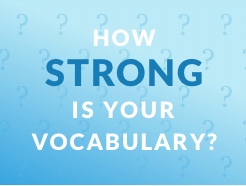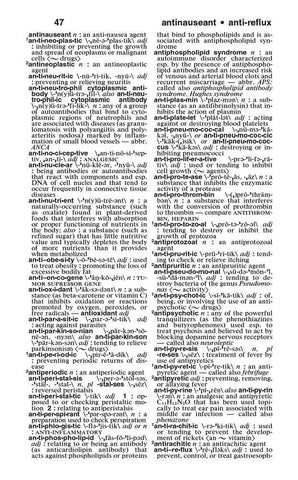

In September, the CDC changed its vaccine definition from “a product that stimulates a person’s immune system to produce immunity to a specific disease” to "a preparation that is used to stimulate the body’s immune response against diseases," according to the Miami Herald. Merriam-Webster's change is in line with updates the Centers for Disease Control and Prevention made to its vaccine definition. The second sub-definition addresses the mRNA vaccine with the definition "a preparation of genetic material (such as a strand of synthesized messenger RNA) that is used by the cells of the body to produce an antigenic substance (such as a fragment of virus spike protein)." COVID-19 vaccines build immunity to virus The first sub-definition addresses an "antigenic preparation of a typically inactivated or attenuated pathogenic agent (such as a bacterium or virus) or one of its components or products (such as a protein or toxin)." The new vaccine definition in Merriam-Webster's dictionary has two sub-definitions that elaborate on the function of a vaccine, a feature that was not present in the old definition. The response produces antibodies that help fight off COVID-19, according to the CDC. According to the CDC, the vaccines work by teaching cells "how to make protein that will trigger an immune response inside our bodies." The Pfizer-BioNTech and Moderna's mRNA vaccines, used to help provide protection against the virus that causes COVID-19, are the only two mRNA vaccines authorized in the U.S. Once the mRNA has performed its task, it is destroyed. MRNA is a section of deoxyribonucleic acid (DNA) that leaves the nucleus of a cell to help make encoded protein. MRNA vaccines have been studied for years, but have recently become available to the public, according to the Centers for Disease Control and Prevention. The new definition also reflects the newer medical technology of messenger RNA (mRNA) vaccines, according to Sokolowski. "The definition (of) immune response provides a detailed description of how a vaccine actually works and is therefore more specific, scientific and complete than the more general term immunity," Sokolowski said.

The editors changed "artificially increase immunity" to "stimulate the body’s immune response" because they believed it would be more helpful to readers, according to Sokolowski.įact check: New ingredient in Pfizer COVID-19 vaccine mischaracterized in online posts The new definition of "vaccine", published in May, reads: "a preparation that is administered – as by injection – to stimulate the body's immune response against a specific infectious agent or disease." "Merriam-Webster adds definitions and evolves existing ones to accurately report on how words are used," he said.Īccording to an archived version of the dictionary's website, Merriam-Webster formerly said a "vaccine" was "a preparation of killed microorganisms, living attenuated organisms, or living fully virulent organisms that is administered to produce or artificially increase immunity to a particular disease." Peter Sokolowski, editor at large for Merriam-Webster, told USA TODAY in an email that the company changed its "vaccine" definition to include more scientifically accurate language. Definition changed 'immunity' to 'immune response' USA TODAY reached out to the social media user who shared the post for comment. The company told USA TODAY the goal was to be scientifically accurate about how vaccines work, not to question their effectiveness. Merriam-Webster revised its "vaccine" definition to replace "immunity" with "immune response." The change also addresses the new technology of mRNA vaccines in light of the COVID-19 pandemic. The post generated close to 27,000 likes in less than a week. Other social media users have shared false claims that Merriam-Webster changed the definition of "anti-vaxxer," PolitiFact reported.įact check: Claim is missing context on WHO's parental-consent guidelines for vaccinating children "Now, Merriam Webster has literally changed the definition of 'vaccine' and removed the 'immunity' portion in order to possibly cover for the fact that the COVID 'vaccines' don't actually provide immunity from COVID." "Vaccine used to be defined as a substances that provides 'immunity' to a specific disease," reads the text of an Instagram post shared Nov.

Merriam-Webster, the company known for its reference books and dictionaries, has become the source of online misinformation about vaccines. Watch Video: Omicron: Biden says new COVID-19 variant 'not a cause for panic The claim: Merriam-Webster removed the immunity part of its 'vaccine' definition


 0 kommentar(er)
0 kommentar(er)
